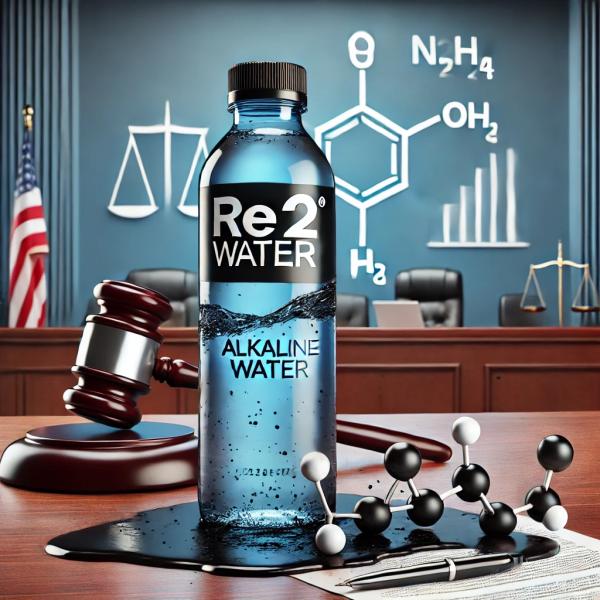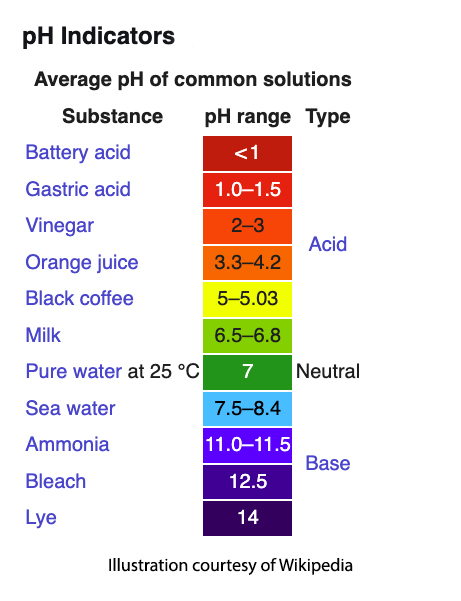
Alkaline water is fast becoming the latest health drink, and proponents are touting its miraculous abilities to cure, repair, rejuvenate, hydrate, beautify, help with weight loss, cure cancer, clarify complexions, and propel you to Mars. Of course, anything that sounds too good to be true probably isn’t. Except, that is, for the rocket propulsion, that claim may actually have some validity. In truth, one alkaline water product likely has killed or injured more people than those claiming benefits.
“There are many claims about the supposed health benefits of electrolyte-infused and alkaline water, but very little scientific evidence.”
– Dr. Leana Wen, George Washington University public health professor
Acid is Not a Four Letter Word:
 As devotees of Dr. Bloom now know, alkaline waters, offered up under the Gatorade Brand as well as others, is a fancy attempt to dupe the consumer into paying a thousand times the product’s production costs– without doing much (if any) good. It might even do harm. For those prone to urinary tract infections, alkaline liquids may be contraindicated, with the highly acidic cranberry juice (pH 2.5-2.7) being the recommended beverage. [1]
As devotees of Dr. Bloom now know, alkaline waters, offered up under the Gatorade Brand as well as others, is a fancy attempt to dupe the consumer into paying a thousand times the product’s production costs– without doing much (if any) good. It might even do harm. For those prone to urinary tract infections, alkaline liquids may be contraindicated, with the highly acidic cranberry juice (pH 2.5-2.7) being the recommended beverage. [1]
Acidic skin is not only normal but therapeutic. It has a pH of about 4.7-5.7, which provides an “acid mantle” that protects the skin from environmental toxicants and bacteria. You’ll see pH numbers around five advertised on facial cleansers and toners as a positive feature since anything much higher (i.e., alkaline) can disrupt the skin's natural barrier function, potentially causing acne breakouts, sensitivity to environmental triggers, compromise the skin’s ability to retain moisture leading to dehydration, excess oiliness, and visible signs of aging like wrinkles and fine lines. (Yes, at my age, I care). So, whatever you do, you do not want to wash your face (or body) with alkaline water.
While no evidence indicates Gatorade’s product is at all problematic, the same product (alkaline water) manufactured by the now defunct Affinity LifeStyles Co. and called Re2al Water seriously injuring some 100-plus consumers and killing others.
“[T]he company claimed its water was infused with negative ions and had an alkaline pH of 9.0. Marketing for Real2Water made vague references to unproven health benefits, such as suggesting that drinking the water leads to "increased cellular hydration."
As far back as 2020, the product was found to cause liver damage, including hepatitis and acute liver failure, in some cases requiring liver transplants, in others resulting in death. [2] By June 2021, the product was officially banned by the FDA, affirmed by a Nevada federal court. At the time that the dangers were first reported, the mechanics of causation of the liver damage were unknown.
Since then, multiple negligence and product liability lawsuits on behalf of scores of plaintiffs have yielded extraordinary verdicts; more cases are being filed, and the awards are escalating:
- In October 2023, a jury awarded two plaintiffs 28 million dollars in compensatory damages and 200 million in punitive damages.
- More cases with similar high awards proceeded throughout 2023 and 2024.
- In June, a 3 billion dollar award was levied against the company. Companies manufacturing testing instruments along with marketers and distributors, including Whole Foods, were also sued, in some cases settling for undisclosed sums.
- By October 2024, another Nevada jury returned a 5.2 billion dollar punitive damage award to 15 claimants in addition to the 230 million dollars in compensatory damages. The court will likely significantly reduce the award per state law [3]; however, punitive damages of this amount signal the jury is very angry.
Why should that be?
It Was the Rocket Fuel
Re2al Water started as normal, everyday water you would get for free, sourced from the Las Vegas public water supply, before being processed into “Re2al Water,” resulting in its alkaline composition. So, how does ordinary water cause liver damage and death? Per the FDA, the final product contained hydrazine, a jet fuel. And drinking the watery jet fuel used to propel rockets injured or killed the plaintiffs.
Contrary to early suspicions, the presence of hydrazine was not caused by an environmental contaminant. Instead, it arose during the complicated 7-step filtrating process, turning the pH-neutral water into an alkaline substance. According to the Department of Justice complaint, the process involved processing the “raw” material sequentially by undergoing multiple filtration steps, including carbon, reverse osmosis, ultraviolet light, and ozone filtration. Potassium chloride was added before the water passed through a proprietary "ionizer" that applied an electrical current, allegedly separating it into positively and negatively charged solutions. The positively charged solution was discarded, and the negatively charged solution was retained and processed again through the ionizer and treated with potassium hydroxide, potassium bicarbonate, and magnesium chloride. The result was an "E2 concentrate," which, when diluted, became their alkaline water product.
As to why the company wasn’t aware of the contamination, they said that testing for jet fuel isn’t customary when testing water. Of course, this wasn’t ordinary water- this was bespoke water.
So, Where Did the Jet Fuel Come From?
During one trial, an environmental engineer testified that the hydrazine likely formed in the "ionizer," made from electrified titanium tubes. Two possible routes may have caused its formation: When the charged water passed through the ionizer, nitrogen gas in the air reacted with water to form hydrazine (N2H4), or, during the ionizing process, ammonia (NH3) was formed, and then reacted with the potassium hydroxide to form hydrazine.
The Moral of the Story
Taking advantage of the unwary consumer is not a new practice, and the maxim Caveat Emptor [Buyer beware] resonates for a reason. While the FDA is charged with keeping dangerous food, cosmetic, drug, and medical devices in check – occasionally dangers slip through, and (gulp) plaintiffs’ attorneys have evolved to “punish” the negligent or reckless manufacturer.
So, what’s the takeaway from this saga of “bespoke” water gone terribly wrong? It’s a cautionary tale about the perils of pseudoscience, ersatz wellness, and the high price of buying into unproven health claims. While alkaline water may not always contain rocket fuel, it’s safe to say that the hype surrounding it probably isn’t worth the gamble—or the price tag. Drink wisely.
`A votre santé (To your health) aka Cheers!
[1] A quick reminder: pH is the yardstick for measuring acidity and alkalinity; the lower the number, the more acidic. A pH of 7 is neutral, like water and salt; those below 7 are acidic, like lemon juice, vinegar, stomach acid, and our skin. Chemicals with a pH above 7 to 14 are “basic” or alkaline, like lye, which is highly corrosive.
[2] Non-viral hepatitis is inflammation of the liver and can lead to the organ’s failure, according to the Centers for Disease Control and Prevention.
[3] Nevada Law limits punitive damages to three times the amount of compensatory damages if compensatory damages are $100,000 or more



